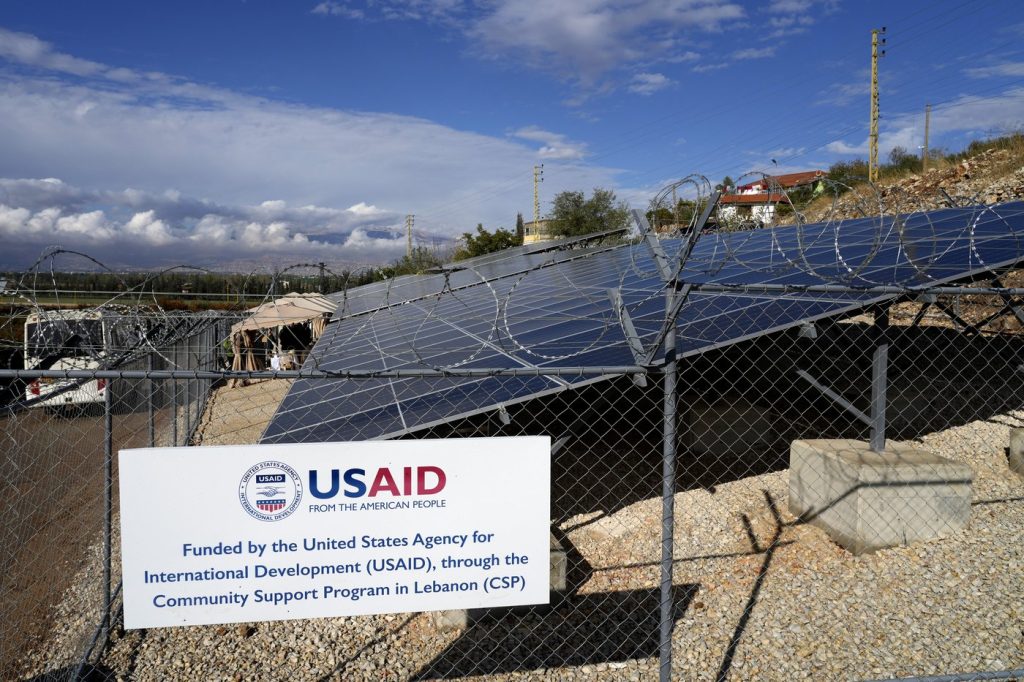The Trump administration announced a significant reduction of personnel at the U.S. Agency for International Development (USAID), marking a drastic shift in its foreign aid strategy. The decision involves withdrawing almost all USAID workers from their roles across the globe, effectively concluding a six-decade mission aimed at bolstering American security through initiatives such as combating hunger, supporting education, and addressing health epidemics.
In an email notification to USAID employees, the administration mandated the return of direct hires overseas within 30 days unless deemed essential. This move comes shortly before a deadline set for a complete transition and follows previous attempts to consolidate USAID under the State Department. Earlier strategies considered included shutting down smaller operations and partially closing larger missions, indicating a broader intent to scale back the agency's activities.
This latest directive follows earlier staffing cuts and program shutdowns resulting from the Trump administration's freeze on foreign assistance, which many Democratic lawmakers criticized. The recent changes have further dismantled USAID, with the agency losing significant leadership and workforce through furloughs and terminations. Additionally, reports indicate that essential infrastructure, such as computer servers, was dismantled in the Washington headquarters, signaling a severe operational halt.
Elon Musk's involvement through his government-efficiency teams, which regard much of the spending overseas as wasteful, adds a controversial layer to this development. Musk himself remarked on social media about the decision, indicating a cavalier attitude toward the agency's dismantling. The pullout of USAID staff threatens billions of dollars in developmental projects spanning about 120 countries, including crucial security aid to allies like Ukraine and initiatives for clean water, job training, and education programs, particularly those benefiting schoolgirls in Afghanistan under Taliban control.
Historically, the U.S. is the largest humanitarian donor globally, dedicating less than 1% of its federal budget to foreign assistance—one of the smallest proportions among developed nations. Health programs that successfully curtailed diseases like polio and smallpox, along with HIV/AIDS initiatives that have saved millions of lives, are among the services already suspended. The cessation of rapid-response teams for contagious disease outbreaks, such as Ebola in Uganda, also poses serious public health risks.
The abrupt halt has significant repercussions, including the sidelining of hundreds of millions of dollars' worth of food and medication previously shipped by U.S. companies. Critics argue that USAID serves a vital role enshrined in law, prohibiting its closure without congressional consent. Bipartisan support exists for the agency’s work to counter the influence of adversaries like Russia and China, solidifying international alliances.
Financially, the decision to accelerate the withdrawal of staff and their families could lead to additional costs for the U.S. government, amounting to tens of millions in travel and relocation expenses. Legal protections for U.S. diplomats shield some staff, but this does not extend to locally employed USAID personnel, who face precarious job situations without adequate recourse against sudden dismissals.
With uncertainty looming, many USAID employees are grappling with difficult personal decisions, including whether to relocate children mid-school year or to give away pets due to the sudden changes in their circumstances. Although the administration has indicated it will consider exceptions for staff requiring more time, the effectiveness and coordination of such processes remain unclear amidst the overall withdrawal.
The response from Secretary of State Marco Rubio, who continues to express support for foreign aid while emphasizing a focus on U.S. interests, encapsulates the tension surrounding future U.S. foreign assistance policies. A notice detailing essential roles and functions for exempted staff is expected shortly, further complicating the dynamics within USAID during this significant transition.










